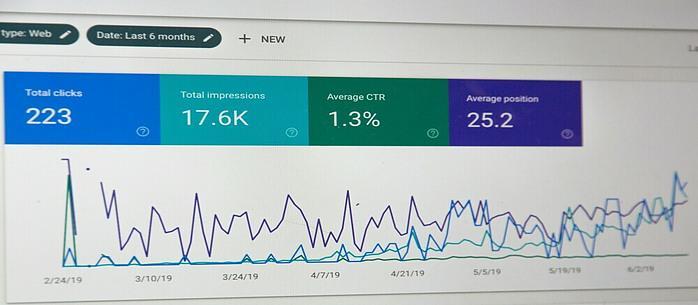Understanding organic search is like having the golden key that opens the door to endless online opportunities. At its core, organic search refers to the unpaid, natural rankings on search engines like Google. Unlike paid ads, you can’t just throw money at it to get to the top. You need well-crafted content and some savvy strategies.
The significance of organic search can’t be overstated. It’s one of the most cost-effective ways to boost visibility online and attract high-quality leads or customers over the long haul. Once set up, it keeps driving traffic to your website without draining your budget. That’s pretty powerful for any brand or business looking to make its mark online.
Real-life examples highlight the benefits of organic search. Take a look at brands that consistently appear on the first page of Google without paying for ads. They’ve nailed the right mix of relevant content, strategic keywords, and user engagement, which keeps them front and center in organic results.
Incorporating organic search strategies lets businesses reach their target audience more naturally and sustainably. It builds trust and credibility, as users tend to click on organic results more than ads. This creates opportunities for meaningful engagement with potential customers who are genuinely interested in what you offer.

Understanding the Core: How Organic Search Works
Getting a grip on how organic search functions is crucial. It revolves around how search engine algorithms process and rank content. These algorithms are like the secret sauce of search engines, using countless factors to determine which web pages come out on top when someone types in a query.
Keywords play a big part here. Think of them as the bridge between what people are looking for and what you offer. When your content uses relevant keywords effectively, it gets a better shot at appearing in those coveted top positions in search results.
In understanding organic search, it’s essential to differentiate it from paid search. Paid search ads appear above organic results and require a financial bid for them to be shown. However, organic search is purely down to the merit of your content and relevance.
The key takeaway? Invest your energy into understanding the language of your audience and tailor your content to match. It’ll pay off in the visibility stakes on those all-important search results pages.

Crafting Your Organic Search Strategy
Building a solid organic search strategy is like setting the foundation for a strong house. You need clarity and precision to ensure it serves your business objectives effectively. Start by defining what you want to achieve. Are you aiming to increase website traffic, improve brand visibility, or generate more leads? Being specific about your goals will guide your overall strategy and keep it focused.
A critical step in your strategy is comprehensive keyword research. Keywords are the everyday search terms potential customers enter, so understanding them is essential. Identify those relevant to your industry, products, or services that have a healthy search volume but aren’t overly competitive. This balance can give you a competitive edge.
Once keywords are in place, create a content plan that speaks directly to your audience. Your roadmap should prioritize content quality and relevance. Think about what your audience wants to know and how you can provide that information better than anyone else. Consider formats like blogs, videos, or guides that best suit the message you want to convey.
Staying adaptive is key in this ever-evolving landscape. Your organic search strategy should be flexible enough to accommodate changes in algorithms, trends, and audience preferences. Regularly review your tactics to ensure they align with your goals and make adjustments as needed. It’s about building a strategy that’s robust yet responsive to change.
On the Hunt for Keywords: Your Guiding Light
Navigating the world of keywords is like having a map of your target audience. These little words and phrases are your guiding light that connects you directly to what potential customers are searching for. The key is to find a mix that resonates with your audience and isn’t too crowded with competition.
Consider diving into long-tail keywords. These are longer, more specific phrases that people use when they’re closer to making a decision. They often convert better because they’re detailed and target a specific search intent. While short-tail keywords have higher search volumes, long-tails are less competitive and can bring in highly targeted traffic.
There are plenty of tools out there to make keyword research a breeze. Platforms like Google Keyword Planner, SEMrush, and Ahrefs offer insights into search volumes and competition levels. They’re incredibly handy for discovering new keyword opportunities and tracking how well your chosen keywords are performing.
Don’t overlook the power of internal linking in your keyword strategy. When you link relevant content within your site, it enhances the user experience and helps search engines understand the content structure and flow. Think of it as creating a web of connections that boost your keyword effectiveness.
Ultimately, the right keywords can elevate your content and expand your reach. Approach this with a strategic mindset, prioritizing the words and phrases that align best with your brand story and user needs. It’s about creating a dialogue with your audience using the language they use to find you.
Content Creation: Storytelling to Captivate and Convert
Creating compelling content is an art and a strategy rolled into one. It’s your chance to tell your brand’s story in a way that hooks your audience and compels them to stick around. Crafting content that resonates and converts doesn’t just happen; it requires a keen understanding of your audience’s needs blended with a splash of creativity.
People-first content means focusing on quality and relevance over quantity. It’s about speaking directly to your audience in a way that feels authentic. Dive into topics that answer their questions and solve their problems, providing information they actually want or need. This approach not only draws people in but can also naturally boost your search rankings when you create useful, engaging posts.
Mix artistry with optimization by ensuring your content aligns with E-E-A-T principles. This means showcasing your experience, expertise, and trustworthiness in every piece you produce. Whether it’s a blog post, video, or infographic, your content should reflect credibility while remaining approachable and engaging.
Don’t forget the power of storytelling. Sharing relatable anecdotes or real-world examples can make your content memorable and impactful. A well-told story sticks with people and often encourages sharing, thereby expanding your reach organically. Tying in a narrative with your brand values and mission can reinforce your identity and build a loyal following.
For successful content creation, balance is crucial. While it’s necessary to include relevant keywords, avoid keyword stuffing that can detract from the natural flow. Prioritize readability and engagement, ensuring that each piece of content serves a purpose and brings value to your audience. This thoughtful approach can transform casual visitors into devoted fans.

Technical SEO: The Backbone of Visibility
Technical SEO might sound daunting, but it’s the behind-the-scenes hero of any successful online presence. This part of SEO isn’t about content or keywords; it’s all about making sure your website is in top shape so search engines can crawl and index it easily.
Website performance is crucial. Nobody likes a slow-loading site, and neither do search engines. Your site should load quickly on all devices, especially mobile. After all, more people are browsing on their phones these days. Tools like Google PageSpeed Insights can help you figure out how fast your site loads and suggest ways to improve it.
Site architecture is another biggie in technical SEO. This means organizing your content neatly so users and search engines can find their way around easily. A well-structured site links logically from one area to another and uses clear, descriptive URLs. It’s like giving your site a road map that guides visitors exactly where they want to go.
Then there’s structured data, a way to help search engines understand your content better. By using structured data, you can give search engines additional clues about your pages, which might help you appear in rich search results like featured snippets. It’s all about making your content more accessible and appealing both to users and to search engines.
When you get these technical factors right, you’re setting a firm foundation for better visibility in search results. And that means more opportunities for engagement and growth. Keep fine-tuning to ensure your site remains accessible and up-to-date, paving the way for search engines to give your content the spotlight it deserves.

Analytics: Measuring Success and Adapting Strategies
Data isn’t just numbers; it’s your roadmap to success. Understanding how your organic search strategies are performing requires digging into analytics to find out what’s working and what needs a tweak.
Start with the right tools. Google Analytics and Google Search Console are must-haves. They give you valuable insights into who your visitors are, how they found you, and what they’re doing on your site. These platforms help track organic traffic, bounce rates, and even conversion metrics, painting a full picture of your site’s performance.
Create customized dashboards to keep track of key performance indicators (KPIs) that matter most to your business. Set measurable goals like increased website traffic, higher engagement rates, or conversion improvements, and use your data to measure progress. Keep it simple and focused on metrics that align with your strategic goals.
Reacting to analytics isn’t just about seeing numbers go up or down; it’s about understanding the “why” behind them. If a blog post suddenly spikes in traffic, dig deeper to see what made it pop – was it a trending topic or a new keyword ranking? Similarly, if something’s not gaining traction, it’s worth reevaluating your approach to see where you can optimize or adjust your content strategy.
Incorporating analytics into your SEO strategy helps ensure you’re not flying blind. Use these insights to adapt and evolve your strategies, making data-driven decisions that enhance your organic search efforts. This ongoing process of measurement and adjustment keeps your strategy fresh and aligned with your audience’s ever-changing needs.
Why Wealthy Affiliate Could Be Your SEO Secret Weapon
Wealthy Affiliate isn’t just another educational platform; it’s a community and a toolbox all rolled into one, perfect for anyone serious about enhancing their SEO game. Whether you’re a newbie or a seasoned marketer, there’s something here for everyone.
At the heart of Wealthy Affiliate are its educational resources, offering step-by-step guides and courses that break down complex SEO strategies into digestible bits. It’s like having a personal mentor guiding you through the intricacies of online marketing.
The platform boasts a community of like-minded entrepreneurs and SEO enthusiasts where collaboration is key. You can share experiences, seek advice, and learn from others who’ve been there and done that. There’s a vibe of mutual support that makes tackling SEO challenges a lot more approachable.
Wealthy Affiliate goes beyond theory, too. With its range of practical tools and features, you can research your niche, find killer keywords, and even build and host your own website. These tools are designed to turn your newfound knowledge into actionable strategies for organic growth.
Getting onboard with Wealthy Affiliate could be that game-changing move for your brand or business. It empowers you with strategies that can transform organic search from a mysterious code into a clear path to visibility and engagement. It’s all about equipping you with the right skills and knowledge to make informed, impactful SEO decisions.
Bringing It All Together: Making Organic Search Work for You
All the pieces come together here, showing how organic search holds immense potential for your brand or business. It’s not a one-and-done scenario; it’s an ongoing journey that requires commitment and adaptation.
By now, it’s clear that success in organic search relies on a blend of strategy, content, and technical know-how. The path begins with understanding your market and building from solid keyword research. Pair that with engaging content that tells your story and technical performance that ensures accessibility, and you’ve got a winning combination.
Essentially, it’s about patience and persistence. Organic search results take time, but the payoff is well worth the wait. With consistent effort and monitoring, your strategies will mature, bringing more visibility and stronger connections with your audience.
We’ve covered how analytics play a vital role in measuring these successes and guiding your adjustments. Sticking to data-driven decisions helps refine your approach, keeping you aligned with audience needs and search engine trends.
And to wrap it all up, Wealthy Affiliate offers an incredible platform to enhance your SEO journey, providing resources and community support to lift your organic search game up a notch.
Embrace this multifaceted approach to make organic search a sustainable, powerful tool in your branding toolkit. With ongoing dedication to crafting high-quality content and optimizing every aspect of your SEO strategy, your brand is poised to thrive in the competitive digital landscape.

Boost Your Profits with Wealthy Affiliate!
Unlock the door to digital prosperity with Wealthy Affiliate—the ultimate platform that transforms your passion into profit. Whether you’re a budding entrepreneur or a seasoned marketer, Wealthy Affiliate is your launchpad to success.
Why Wealthy Affiliate?
- Instant Niche Discovery: With our AI-driven tools, find your perfect business niche in a snap.
- Effortless Website Creation: Launch a stunning, profit-ready website in seconds—no tech headaches!
- Unlimited Traffic Mastery: Learn cutting-edge strategies to attract your ideal audience.
- Boundless Earning Potential: Monetize your traffic with ease, choosing from nearly 600 million products.
Join a thriving community of over 2.6 million members and leverage 18 years of industry-leading experience. With Wealthy Affiliate, you’re not just building a business; you’re crafting a future of financial freedom.
Start for Free Today! No credit card is required. No risk. Just pure opportunity!
Where to Source Testimonials
- Wealthy Affiliate’s Website/Blog: There are likely success stories showcased here.
- Trustpilot: See what genuine users are saying: https://www.trustpilot.com/review/wealthyaffiliate.com
- Social Media: Search for relevant hashtags on Twitter, Facebook groups, etc. Reach out directly to users expressing praise for the program.
Martin
—

